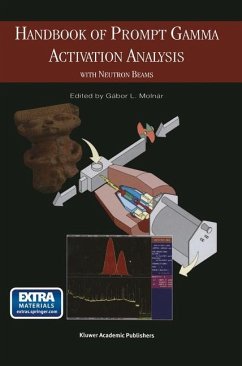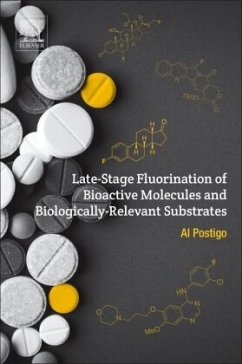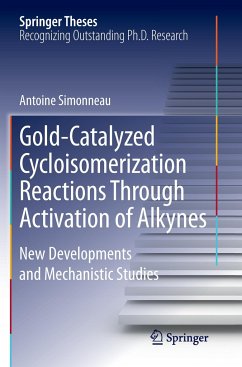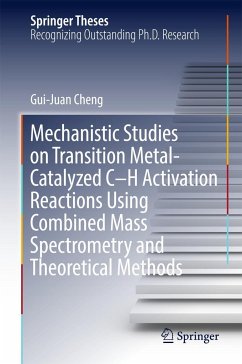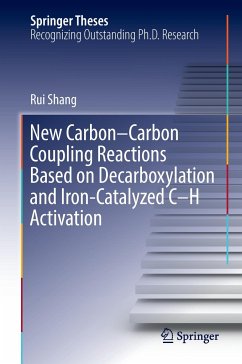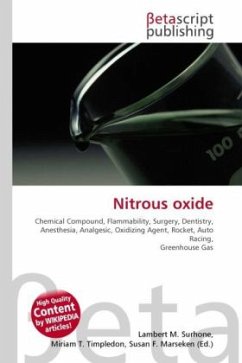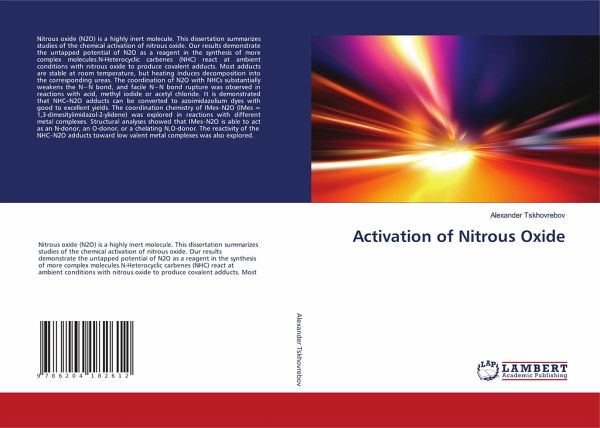
Activation of Nitrous Oxide
Versandkostenfrei!
Versandfertig in 6-10 Tagen
47,99 €
inkl. MwSt.

PAYBACK Punkte
24 °P sammeln!
Nitrous oxide (N2O) is a highly inert molecule. This dissertation summarizes studies of the chemical activation of nitrous oxide. Our results demonstrate the untapped potential of N2O as a reagent in the synthesis of more complex molecules.N-Heterocyclic carbenes (NHC) react at ambient conditions with nitrous oxide to produce covalent adducts. Most adducts are stable at room temperature, but heating induces decomposition into the corresponding ureas. The coordination of N2O with NHCs substantially weakens the N-N bond, and facile N-N bond rupture was observed in reactions with acid, methyl iod...
Nitrous oxide (N2O) is a highly inert molecule. This dissertation summarizes studies of the chemical activation of nitrous oxide. Our results demonstrate the untapped potential of N2O as a reagent in the synthesis of more complex molecules.N-Heterocyclic carbenes (NHC) react at ambient conditions with nitrous oxide to produce covalent adducts. Most adducts are stable at room temperature, but heating induces decomposition into the corresponding ureas. The coordination of N2O with NHCs substantially weakens the N-N bond, and facile N-N bond rupture was observed in reactions with acid, methyl iodide or acetyl chloride. It is demonstrated that NHC-N2O adducts can be converted to azoimidazolium dyes with good to excellent yields. The coordination chemistry of IMes-N2O (IMes = 1,3-dimesitylimidazol-2-ylidene) was explored in reactions with different metal complexes. Structural analyses showed that IMes-N2O is able to act as an N-donor, an O-donor, or a chelating N,O-donor. The reactivity of the NHC-N2O adducts toward low valent metal complexes was also explored.




